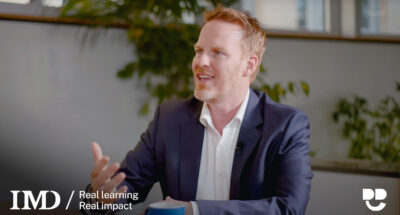
How does sustainable leadership work?
This episode takes you behind the scenes of a recent gathering led by the World Business Council for Sustainable Development together with IMD, where David Bach sat down with two sustainability leaders....
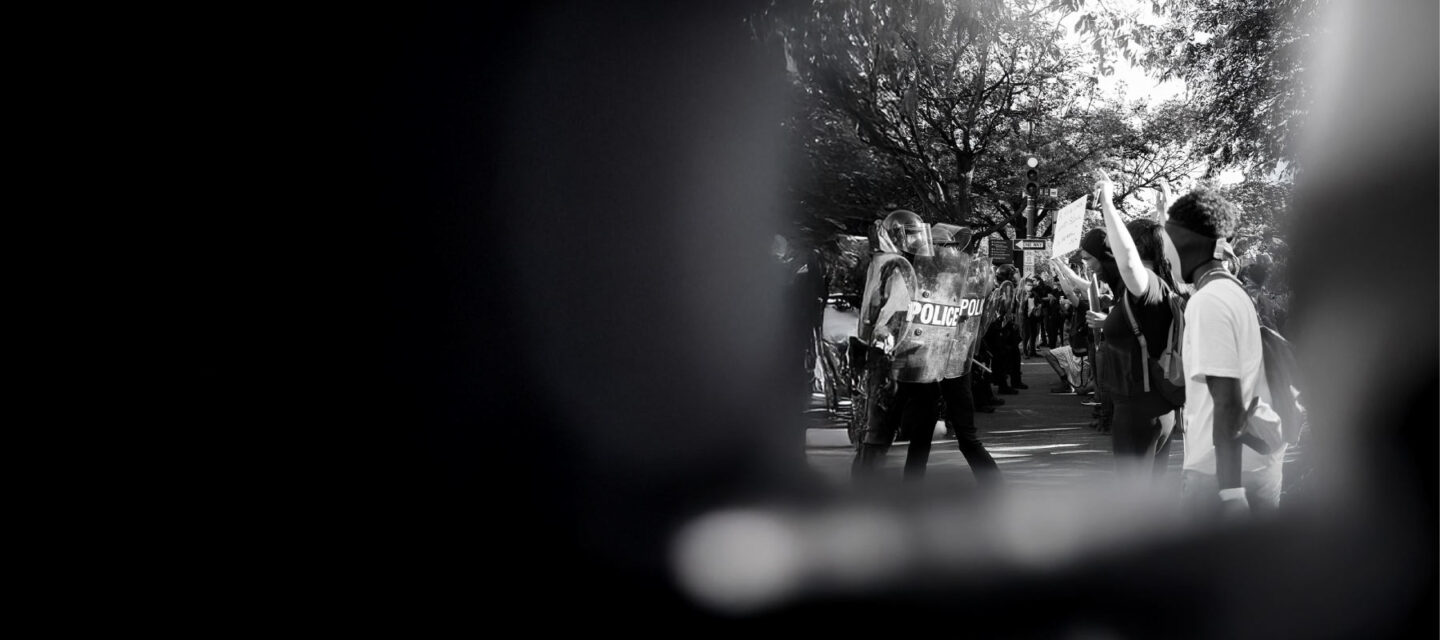
by Sat Dayal Published March 20, 2025 in Leadership • 6 min read • 
In a volatile world where trust has become both an asset and a liability for business leaders, the 2025 Edelman Trust Barometer paints a sobering picture: trust in institutions has not grown despite political changes and economic shifts. Instead, we face a “Crisis of Grievance” – a widespread sense that the actions of business and government are hurting us, serving a select few in a system that favors the rich, and where the rich are getting richer. This sense of grievance against business, government, and the rich is held by 61% of the public.
Grievance comes at a cost. The more aggrieved we are, the more likely we will show a zero-sum mindset: the feeling that what helps people who don’t share our politics comes at a personal cost. Leadership is at a crossroads. While trust in business remains higher than in government, media, and NGOs, the study shows that employer trust is declining among employees for the first time globally (See chart 1).
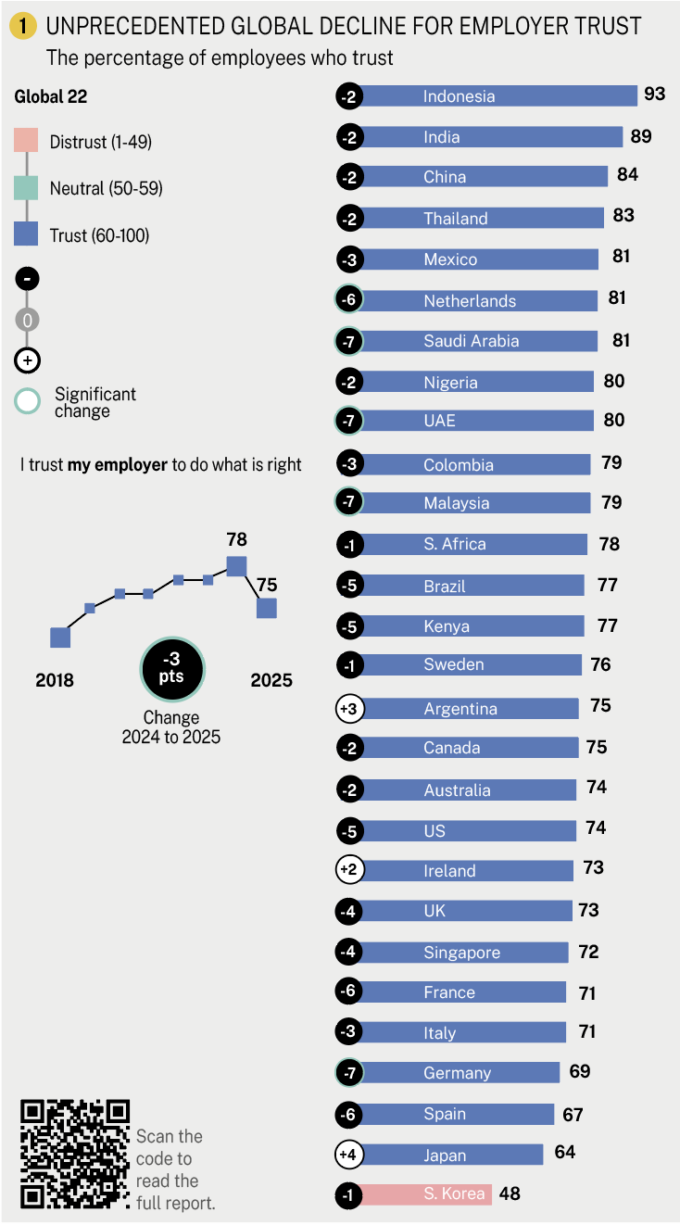
Employees and the wider public expect businesses to do more: more on job skills and better working conditions, more on societal impact, and, in general, a lot more empathy. Through 25 years of the Trust Barometer, we have seen how trust has shifted from authorities to peers (2005), reinforced a mass class divide (2016), and taken center stage in the battle for truth (2018). Yet, in recent years, we’ve also seen business become the most trusted institution (2021).
To navigate this newest of new realities, organizations and their leaders must actively work to address grievances by building and sustaining trust. Here’s how:
Trust in CEOs and business is lower among those who feel a high sense of grievance. The report finds a 34-point gap in CEO trust between those who hold a low and high sense of grievance (See chart 2). Leadership trust is not just about competence – it’s about perceived fairness and ethics.
What businesses can do:

According to the findings, employees increasingly worry about globalization, automation, and economic downturns threatening their livelihoods. Business leaders must recognize that building trust isn’t just about messaging – it’s about taking action to drive change.
What businesses can do:
The public’s expectations of businesses extend beyond delivering products and services. According to the report, people believe business leaders are not doing enough and should do more to address climate change, affordability, misinformation, and discrimination – this is particularly strong among those with a higher sense of grievance (See chart 3).
What businesses can do:

At a time when artificial intelligence is high on the agenda for many organizations, the Trust Barometer highlights suspicion toward this technological transformation, particularly among those who feel highly aggrieved. Trust in AI drops by 22 points among individuals with high grievance levels. Without clear safeguards and ethical considerations, businesses risk alienating customers and employees.
What businesses can do:
The Crisis of Grievance is not just a corporate issue but also a societal one. The report suggests that for those with high grievance, business is seen as 81pts less ethical and 37pts less competent compared to those with low grievance. And while businesses can lead the way to create meaningful change, this must be a collaborative effort with governments, media, and NGOs.
What businesses can do:
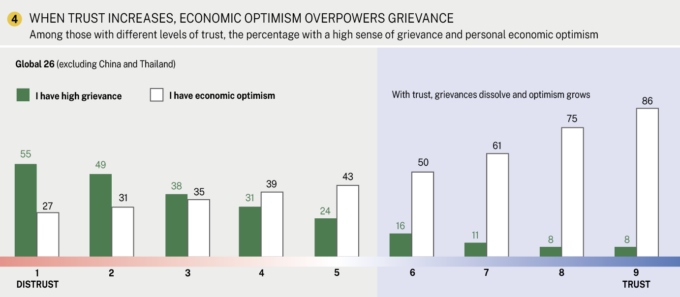
At a time when four in 10 see hostile activism as a viable means to drive change, the 2025 Edelman Trust Barometer sends a clear message: trust can never be taken for granted. Business leaders must navigate a more skeptical, frustrated, and uncertain world where trust is fragile and expectations are higher than ever.
The solution demands not simply better messaging or branding but authentic action, economic responsibility, and ethical leadership. Organizations that invest in their people, demonstrate integrity, and engage meaningfully in societal issues will be better positioned to rebuild trust and drive long-term success.
In an era where grievances shape public perception, trust is no longer a passive asset but an active commitment. With greater trust comes greater optimism for the future and lower levels of grievance (See chart 4). Business leaders who understand and address the root causes of distrust will strengthen their organizations and contribute to a more stable and positive future for all.

Managing Director of Edelman London’s Technology Practice
Sat Dayal is Managing Director of Edelman London’s Technology Practice. He has represented technology brands and leaders since the dot-com era, including early mobile, cloud, and digital media brands. He is Edelman London’s Diversity, Equity, and Inclusion lead and is also responsible for activating Edelman’s global citizenship agenda in the EMEA region.

April 17, 2025 • by David Bach, Felix Zeltner in Leadership
This episode takes you behind the scenes of a recent gathering led by the World Business Council for Sustainable Development together with IMD, where David Bach sat down with two sustainability leaders....

April 17, 2025 • by Michael Skapinker in Leadership
All organizations should have a plan to secure trust during, after (and even before) a crisis hits. Here are a host of examples, good and bad, to learn from....
 Audio available
Audio available
April 15, 2025 • by Knut Haanaes in Leadership
Writing reports that go unread, weekends wasted working on non-essential tasks, and unrealistic targets that can never be met. Top talent is being left exhausted and demoralized. Here are seven ways to...
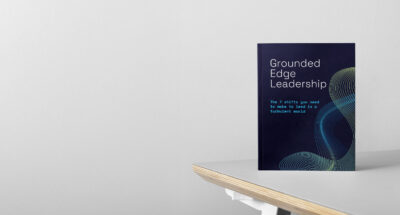
April 11, 2025 • by Michael D. Watkins in Leadership
Michael Watkins outlines the simultaneous need for acuity and inner rootedness – what he calls Grounded Edge Leadership – to navigate increasing change and uncertainty....
Explore first person business intelligence from top minds curated for a global executive audience